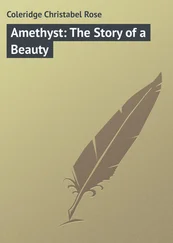Christabel Coleridge - Maud Florence Nellie - or, Don't care!
Здесь есть возможность читать онлайн «Christabel Coleridge - Maud Florence Nellie - or, Don't care!» — ознакомительный отрывок электронной книги совершенно бесплатно, а после прочтения отрывка купить полную версию. В некоторых случаях можно слушать аудио, скачать через торрент в формате fb2 и присутствует краткое содержание. Издательство: Иностранный паблик, Жанр: foreign_prose, foreign_children, на английском языке. Описание произведения, (предисловие) а так же отзывы посетителей доступны на портале библиотеки ЛибКат.
- Название:Maud Florence Nellie: or, Don't care!
- Автор:
- Издательство:Иностранный паблик
- Жанр:
- Год:неизвестен
- ISBN:нет данных
- Рейтинг книги:3 / 5. Голосов: 1
-
Избранное:Добавить в избранное
- Отзывы:
-
Ваша оценка:
- 60
- 1
- 2
- 3
- 4
- 5
Maud Florence Nellie: or, Don't care!: краткое содержание, описание и аннотация
Предлагаем к чтению аннотацию, описание, краткое содержание или предисловие (зависит от того, что написал сам автор книги «Maud Florence Nellie: or, Don't care!»). Если вы не нашли необходимую информацию о книге — напишите в комментариях, мы постараемся отыскать её.
Maud Florence Nellie: or, Don't care! — читать онлайн ознакомительный отрывок
Ниже представлен текст книги, разбитый по страницам. Система сохранения места последней прочитанной страницы, позволяет с удобством читать онлайн бесплатно книгу «Maud Florence Nellie: or, Don't care!», без необходимости каждый раз заново искать на чём Вы остановились. Поставьте закладку, и сможете в любой момент перейти на страницу, на которой закончили чтение.
Интервал:
Закладка:
There were no flowers, except in the sitting-room window, but there were tribes of young live things instead – broods of little pheasants, rare varieties of game and poultry, and puppies of different kinds under training. The barking, twittering, and active movements of all these little creatures made the place cheerful, and took off from the lonely solemnity of the great woodland glades, stretching out from the clearing as far as eye could reach.
It was a very beautiful place, but “it weren’t over populated,” as Mrs Stroud remarked one fine July evening, as she sat at the door looking out at the wood, having come to spend a couple of nights with her cousins.
“We don’t find it lonesome,” said Mrs Warren. “It’s not above half a mile down that path to the village, and there’s a good many of us scattered about in the lodges and gardens to make company for each other.”
Mrs Warren was a pleasant-looking woman, well spoken, with a refined accent and manner, being indeed the daughter of a former gardener at Ashcroft Hall.
“Well,” said Mrs Stroud, “there’s something about them glades as I should find depressing. With a street, if you don’t see the end of it, at least you know there’s fellow-creatures there, if you did see it; but there’s no saying what may be down among those green alleys. To say nothing that one does associate overhanging trees with damp.”
“Well, we have to keep good fires, but, you see, there’s plenty of fuel close by. And how did you leave your brother and his young family? I’ve often thought I’d like to renew the acquaintance.”
“Well, they have their health,” said Mrs Stroud. “But there, Charlotte, young people are always an anxiety, and them girls do want a mother’s eye.”
“No doubt they do, poor things. Why, the eldest must be quite a young woman.”
“I don’t know that there’s much to be said against Martha Jane,” said Mrs Stroud. “She’s a good girl enough in her way, though too much set on her book, and keeps herself to herself too much, to my thinking. If that girl ever settles in life, she’ll take the crooked stick at last, mark my word for it.”
“Has she any prospects?” asked Mrs Warren.
“She might ,” said Mrs Stroud with emphasis. “Undertaking is an excellent trade, and she sees young Mr Clements frequent at funerals – or might if she looked his way, as I’m certain sure he looks hers.”
“Well, girls will have their feelings,” said Mrs Warren. “And isn’t the next one growing up too?”
“Ah,” said Mrs Stroud, with a profound sigh.
“There’s worse faults than being too backward after all, and that there Florence is indeed a trial. I tell my brother that good service is the only chance for her, and that I should consult you about it.”
“I thought she was in a shop.”
“She were . But she’ve thrown up an excellent chance.”
Here Mrs Stroud entered on a long account of Florence’s appearance, character, and recent history, ending with: “So, Charlotte, seeing that she’s that flouncy and that flighty that she’ll come to no good as she is, I thought if you could get her under the housekeeper here for a bit it would be a real kindness to my poor brother.”
“But Mrs Hay would never look at a girl that was flighty and flouncy. The servants are kept as strict and old-fashioned as possible – plain straw bonnets on Sunday, and as little liberty as can be. No doubt they learn their business well, but I do think if there was a lady at the head she might see her way to making things a bit pleasanter for young people. ’Tis a dull house, even for Miss Geraldine herself, and has been ever since the time you know of.”
“Ay,” said Mrs Stroud mysteriously, “and it’s that there unlucky Harry that Florence takes after – more’s the pity. Well, tell me about your young folk.”
“Well, Ned, you know, is under his father – his wife is a very nice steady girl – and Bessie’s got the Roseberry school; she got a first-class certificate, and is doing well. And Wyn – we’re rather unsettled in our minds about Wyn. He don’t seem quite the build, the father thinks, for a keeper, and he don’t do much but lead about poor Mr Edgar’s pony chaise and attend to his birds and beasts for him. Mr Edgar seems to fancy him, and we’re glad to do anything for the poor young gentleman. But Bessie, she says that it’s all very well for the present, but it leads to nothing. Wyn declares he’ll be Mr Edgar’s servant when he grows up. But there, poor young gentleman! there’s no counting on that – but of course Wyn might take to that line in the end, and be a gentleman’s valet.”
“And Mr Alwyn, that Wyn was named after, haven’t never come home?”
“Never – nor never will, to my thinking. The place is like to come to Miss Geraldine, unless Mr Cunningham leaves it to Mr James, his nephew.” Mrs Warren was only relating well-known facts, as she delivered herself of this piece of dignified gossip with some pride even in the misfortunes of the great family under whose shadow she lived, and Mrs Stroud sighed and looked impressed.
“Well,” she said, “small and great have their troubles, and Mr Alwyn were no better than Harry, and where one is the other’s likely to be.”
“I’ve always felt a regret,” said Mrs Warren, “that we couldn’t take better care of Harry when he was sent to us here. And I’ve been thinking, Elizabeth, that if John Whittaker would trust us with Florence I should be glad to have her here for a time, and see if I could make anything of her. It would be a change, and if she’s got with idle girls, it would separate her from them.”
“Well, there’d be no streets here for her to run in,” said Mrs Stroud. “You’re very kind, Charlotte, but I doubt you don’t know what a handful that there girl is!”
“I’ve seen a good many girls in my time,” said Mrs Warren, smiling, “though my Bessie is a quiet one; and if she finds herself a bit dull at first, it’s no more than she deserves, by your account of her, poor thing!”
“I believe my brother ’ll send her off straight,” said Mrs Stroud. “It’s downright friendly of you, Charlotte, and Florrie shall come, if I have to bring her myself.”
Mrs Warren was a kind and conscientious woman; but she would hardly have proposed to burden herself with such a maiden as Florence was described to be but for circumstances which had always dwelt on her mind with a sense of regret and responsibility. When Harry Whittaker had, as his aunt put it, made Rapley too hot to hold him, he had been sent to Ashcroft to try if his cousin could make him fit for an under-keeper’s place, alongside of his own son Ned. Harry’s spirit of adventure and active disposition were not unfitted for such work, and the plan looked hopeful.
At that time Ashcroft Hall had been a gayer place than it was now. Mr Cunningham was still a young man, taking his full share in society, and his two sons were active, high-spirited youths of sixteen and twenty, devoted to sport and to amusements of all kinds. Alwyn, the eldest, was at home at the time when Harry Whittaker was sent to Ashcroft. He had the sort of grace and good-nature which wins an easy pardon, at any rate among old friends and dependents, for a character for idleness and extravagance, and naturally he and his brother were intimate and companionable with the young keepers, side by side with whom they had grown up. It was quite new to Harry Whittaker to spend long days in a gentleman’s company, fishing and shooting, joining in conversation, and often sharing meals together; but he contrived, with tact, to adapt himself to the mixture of freedom and deference with which his cousin treated the young squires.
Читать дальшеИнтервал:
Закладка:
Похожие книги на «Maud Florence Nellie: or, Don't care!»
Представляем Вашему вниманию похожие книги на «Maud Florence Nellie: or, Don't care!» списком для выбора. Мы отобрали схожую по названию и смыслу литературу в надежде предоставить читателям больше вариантов отыскать новые, интересные, ещё непрочитанные произведения.
Обсуждение, отзывы о книге «Maud Florence Nellie: or, Don't care!» и просто собственные мнения читателей. Оставьте ваши комментарии, напишите, что Вы думаете о произведении, его смысле или главных героях. Укажите что конкретно понравилось, а что нет, и почему Вы так считаете.












